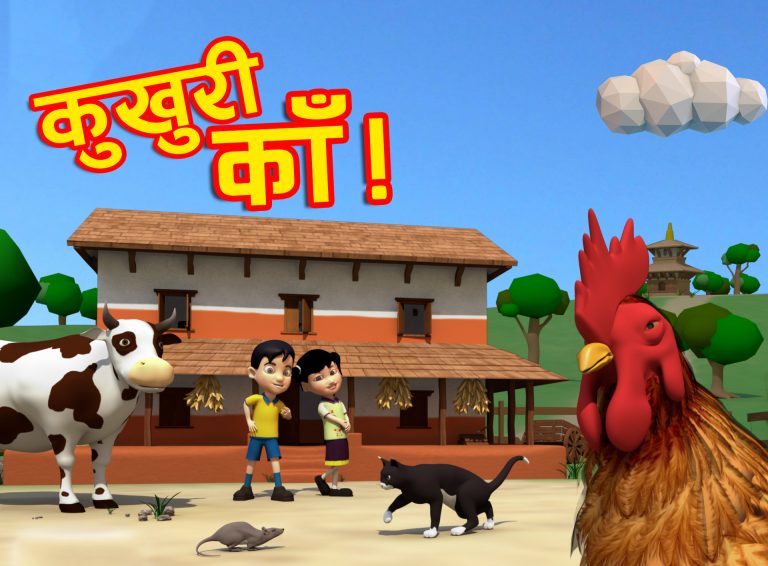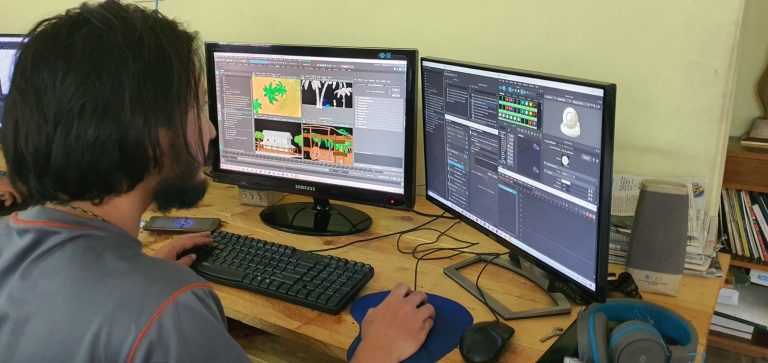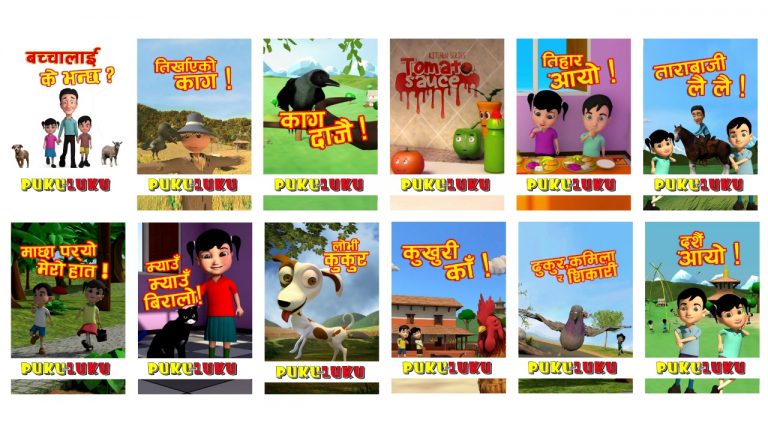
In 2017, two friends, Santosh Paudyal and Pabitra Ratna Shakya shared their problems with each other – ‘lack of quality content for children in Nepali language on YouTube’.
The duo had been friends since they started off their careers in communication – and had even gone beyond to establish a media production house together.
Already working as content creators, they thought; since there is no content, why don’t we create the content ourselves?
Thus came into existence Puku Luku – a commercial interest with a social objective.
Puku Luku has come a long way since its inception – 18 videos, millions of cumulative views, and 134,000 subscribers. Just as recently as July, 2020, they were presented with a Silver Creator Award from YouTube for sailing through the 100,000 subscribers’ milestone.

However, only the team at Puku Luku know the hard work they had, and continue to put to get this far.
“Conceiving an idea is one thing, nurturing it into something valuable is another”, Santosh Paudyal comments as he shares Puku Luku’s arduous journey towards success.
“The channel may say 18 videos, but only our team knows the efforts we have put in there. Creating an animated video is in itself an exhaustive job, couple it with compiling the composition, it takes a massive amount of energy and creativity”, Paudyal says.

“However, it was, and continues to be worth it. With each video, we inch closer towards our vision of creating meaningful content to children in Nepali language”, he adds.
Puku Luku, through its beautifully crafted animated videos has successfully digitised popular Nepali rhymes, songs, fables, and popular folklore – thankfully before it became extinct.
It has been providing Nepali children entertaining content with an informational angle, and that’s where Nepalese Voice’s interest arose.
For Nepalese Voice, a publication primarily catering to the Nepalese Diaspora, the problem of lack of content for children to learn Nepali language is all too familiar. So much so, it is dinner time conversation between Nepali families abroad.
I remember listening to two parents share with me how they wish their children spoke more Nepali when I was in Sydney as recently as January, 2020.
I remember publishing articles about several organizations helping second generational children speak Nepali language and learn about Nepali language and tradition.
Therefore, the existence of Puku Luku comes as a boon – in many ways it helps parents solve the language problem.
“Children are like a sponge when it comes to absorbing information; however, the content also has to be engaging. If it isn’t interesting, children will lose interest. Therefore, we have laid emphasis on the quality of our content. We do not want our children to lose attention midway through the video”, Santosh shares.
I have to agree with Santosh – the videos on Puku Luku are at par, and many times better than many other international rhymes.

However, according to Rupen Pradhan, who heads marketing of Puku Luku, “creating such videos consumes considerable resources – financial and physical”.
Puku Luku, which has been sustaining itself with internal resources till date, intends to rope in relevant brands in the future. “Since Puku Luku is targeted at children, we want to keep the channel wholesome. We have to adhere to international policy about the implementation of rules regarding kids’ content. We will eventually open branding and product interaction opportunities, however, will only partner with responsible companies. We want to ensure our content, and our associations’ are absolutely healthy for kids”, Pradhan added.
Approaching the subject of content, according to Santosh, “for many parents, Puku Luku videos also stir nostalgia – for example, Tara Baaji Lai or Myau Myau Biralo are famous rhymes they grew up listening to”.
According to Santosh Paudyal, Puku Luku is a popular channel within Diaspora homes. After Nepal, most of their subscriptions are from the United States, Australia, and the United Kingdom – home to some of the biggest Diaspora population after the Middle-East.
Besides teaching Nepali rhymes or Nepali language, Puku Luku also educates viewers about Nepal’s culture and traditions. For example, Dashain and Tihar festival songs interactively inform children about the significance of the festivals, therefore further appealing to parents.
According to Santosh, Puku Luku, and its team members are excited to develop more content in the future – they have some rhymes lined up, and are looking to publish them soon. To give me a sense of what I can expect, he asked me to name all seasons in Nepali.
I faltered, and sought his assistance.
Smiling, he replied, “Maybe you should wait for the video”.
Well, of course I have already Googled the answer. However, also await the video – to show to my English obsessed niece.







